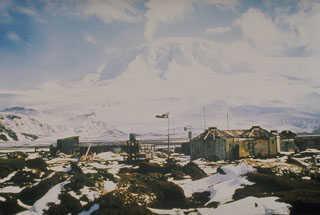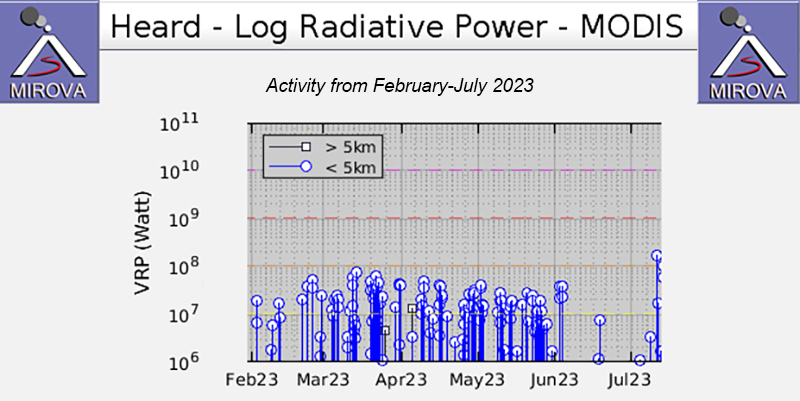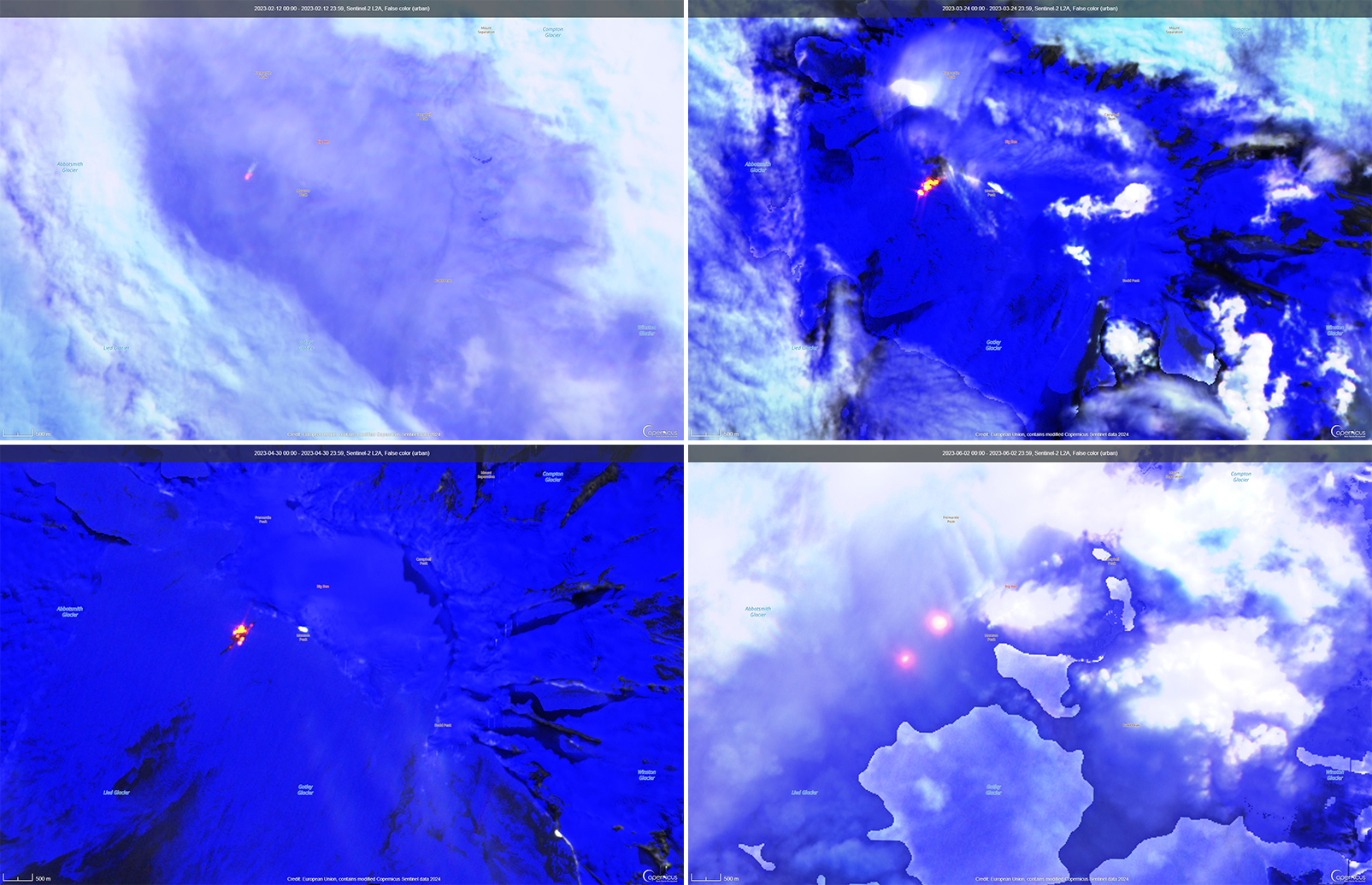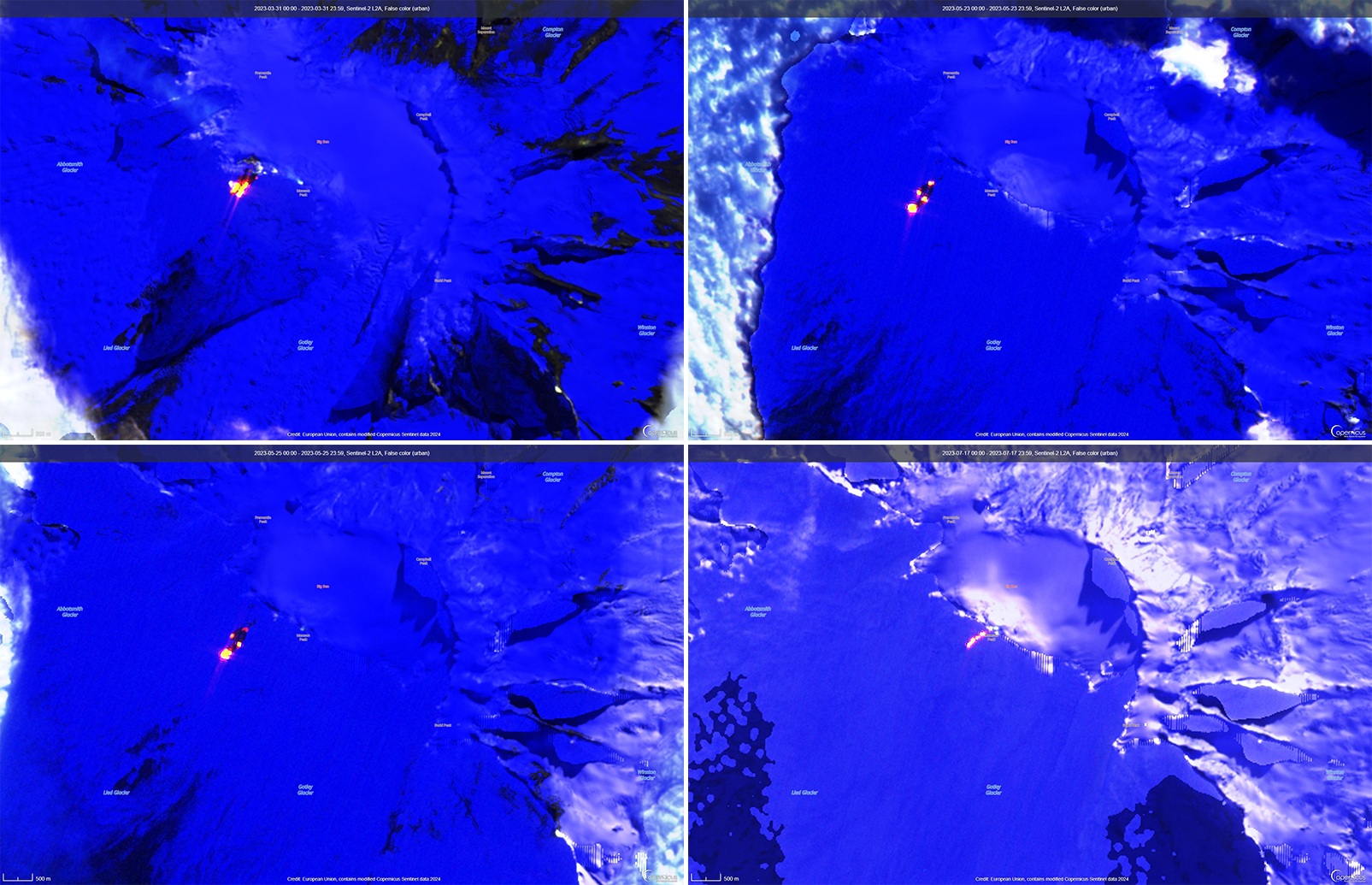Report on Heard (Australia) — August 2023
Bulletin of the Global Volcanism Network, vol. 48, no. 8 (August 2023)
Managing Editor: Benjamin Andrews.
Edited by Kadie L. Bennis.
Heard (Australia) Lava flows and thermal activity persist during February-July 2023
Please cite this report as:
Global Volcanism Program, 2023. Report on Heard (Australia) (Bennis, K.L., and Andrews, B., eds.). Bulletin of the Global Volcanism Network, 48:8. Smithsonian Institution.
Heard
Australia
53.106°S, 73.513°E; summit elev. 2745 m
All times are local (unless otherwise noted)
Heard, a remote island located in the southern Indian Ocean, consists of two volcanic structures: Big Ben and the smaller Mt. Dixon. The active Mawson Peak is located within a 5-6 km-wide caldera breached to the SW side of Big Ben. Intermittent eruptions have occurred since 1910; the current eruption period began in September 2012, which has mainly been characterized by thermal activity and intermittent lava flows (BGVN 48:02). This report covers continuing effusive and thermal activity during February through July 2023 using satellite data.
MIROVA (Middle InfraRed Observation of Volcanic Activity) analysis of MODIS satellite data showed intermittent low-to-moderate thermal activity during February through July 2023 (figure 54). There were short periods of no thermal activity during early and late June. MODIS satellite instruments using the MODVOLC thermal algorithm also detected a total of 34 strong thermal hotspots on 8 and 24 February, 5, 12, 19, 20, and 22 March, 8, 9, 15, 16, 28, and 29 April, 2 and 18 May, 2 and 3 June, and 11, 13, and 15 July. On clear weather days, infrared satellite imagery captured thermal activity to the W of the summit of Mawson Peak (figure 55). Fresh and cooling lava flows were observed on the SW flank in infrared satellite images underneath the active thermal anomalies (figures 55 and 56). This activity was captured at least 12 times in satellite imagery on 12 February, 6, 21, 24, and 31 March, 5, 13, 25, and 30 April, 23 and 25 May, and 17 July.
Geological Summary. Heard Island on the Kerguelen Plateau in the southern Indian Ocean consists primarily of the emergent portion of two volcanic structures. The large glacier-covered composite basaltic-to-trachytic cone of Big Ben comprises most of the island, and the smaller Mt. Dixon lies at the NW tip of the island across a narrow isthmus. Little is known about the structure of Big Ben because of its extensive ice cover. The active Mawson Peak forms the island's high point and lies within a 5-6 km wide caldera breached to the SW side of Big Ben. Small satellitic scoria cones are mostly located on the northern coast. Several subglacial eruptions have been reported at this isolated volcano, but observations are infrequent and additional activity may have occurred.
Information Contacts: MIROVA (Middle InfraRed Observation of Volcanic Activity), a collaborative project between the Universities of Turin and Florence (Italy) supported by the Centre for Volcanic Risk of the Italian Civil Protection Department (URL: http://www.mirovaweb.it/); Hawai'i Institute of Geophysics and Planetology (HIGP) - MODVOLC Thermal Alerts System, School of Ocean and Earth Science and Technology (SOEST), Univ. of Hawai'i, 2525 Correa Road, Honolulu, HI 96822, USA (URL: http://modis.higp.hawaii.edu/); Copernicus Browser, Copernicus Data Space Ecosystem, European Space Agency (URL: https://dataspace.copernicus.eu/browser/).




